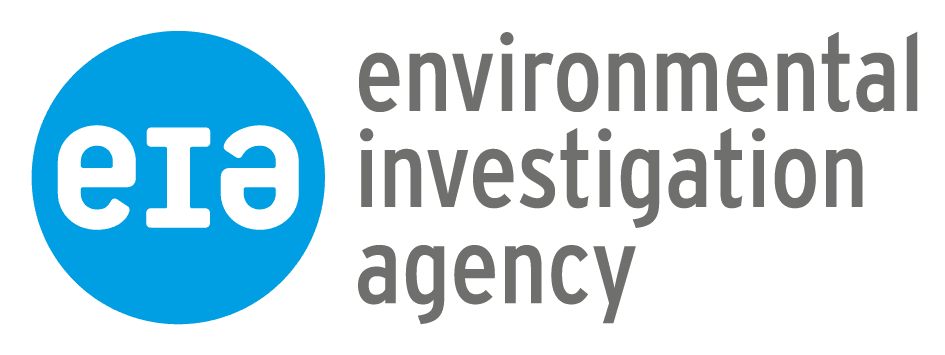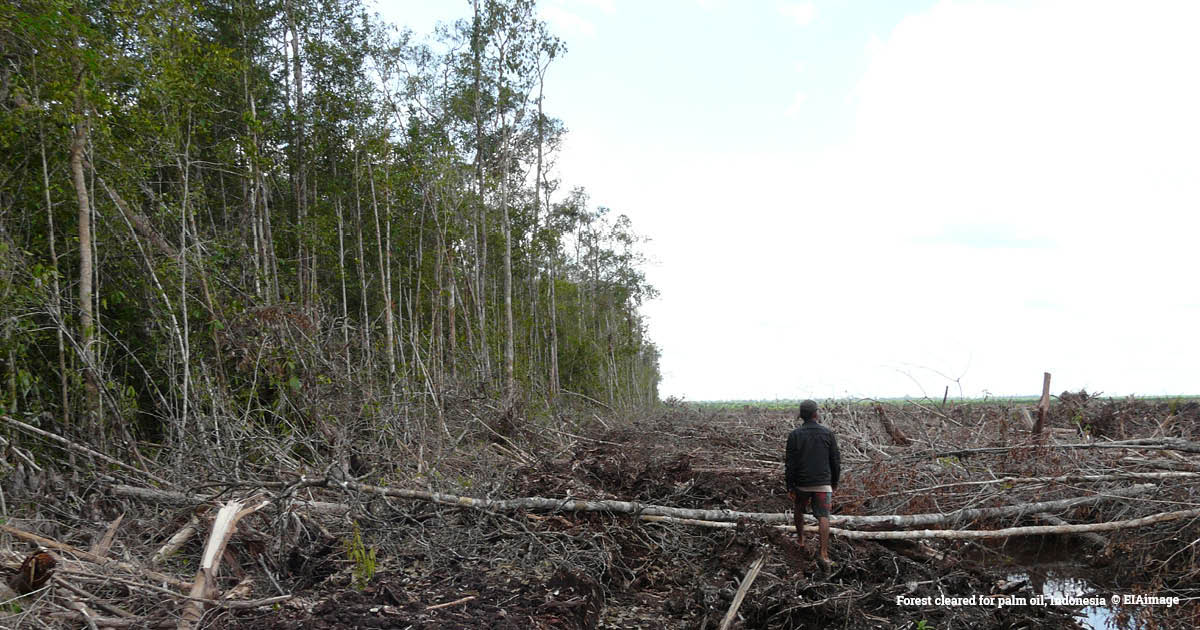EU country risk-ranking system for forest products must keep focus on human rights and deforestation



Senior European lawmakers have been urged to ensure human rights and deforestation issues are kept at the heart of a new forest products risk-ranking system for countries.
The proposed country risk benchmarking system will operate under the EU Deforestation Regulation (EUDR), which seeks to prohibit trade in timber, beef, leather, chocolate, soy, palm oil and coffee if they are linked to deforestation or produced illegally.
The benchmarking system will rank countries or areas based on the levels of risk that trade with them represents – low, standard or high – and the risk levels awarded will in turn determine the level of due diligence companies need to perform, as well as the degree of enforcement checks in the EU.

Forest cleared for oil palm plantation (c) EIA
But EIA and our campaign partners are concerned by proposals for most countries or areas judged to be of low risk, which could see them subjected to far less scrutiny over human rights violations or deforestation.
We and 39 other civil society organisations have signed an open letter to five key EU Commissioners urging them to ensure that the risk-ranking system upholds the EUDR’s ambitions and properly reflects human rights and deforestation risks existing in areas of production.
The Commissioners addressed are Teresa Ribera (Executive Vice President for a Clean, Just and Competitive Transition), Kaja Kallas (High Representative for Foreign Affairs and Security Policy and Vice-President of the European Commission), Jessika Roswall (Commissioner for Environment, Water Resilience and a Competitive Circular Economy), Jozef Síkela (Commissioner for International Partnerships) and Maroš Šefčovič (Commissioner for Trade and Economic Security; Interinstitutional Relations and Transparency).

Coffee plantation, Vietnam (c) CIAT
EIA Forests Campaigner Sophie Bennett said: “It is concerning if a majority of businesses trading in products within scope of the Regulation will be able to conduct reduced due diligence on whether they are linked to deforestation because they are trading from countries designated as ‘low-risk’.
“This means that for those products, enforcement authorities will reduce the number of checks they conduct and both operators and traders will give less regard as to whether their products are linked to deforestation. This would almost certainly result in weaker enforcement.
“The benchmarking is clearly a key component of the regulation, so it’s vital that it is as strong as possible.”
The EUDR is one of the biggest achievements of the EU Green Deal, introduced by European Commission President Ursula von der Leyen in November 2021 in response to the global biodiversity and climate crises.
It is needed now more than ever to help prevent devastating biodiversity loss and climate change as well as the violation of human rights. EIA and our campaign partners firmly believe preserving its integrity is vital to its success.
The EU Commissioners named above are all key players in the EU’s environmental policy, especially where it has global impact. The Commission they oversee proposes laws, ensures EU laws are applied effectively across members states and manages EU spending.
“It is therefore crucial that they support a robust benchmarking system for the EUDR for it to be successful in curbing deforestation,” added Bennett.
To safeguard benchmarking integrity, EIA urges the Commission to ensure the methodology: